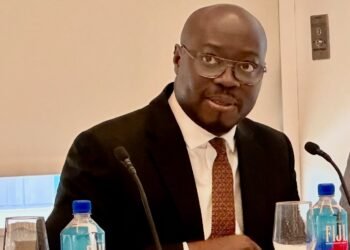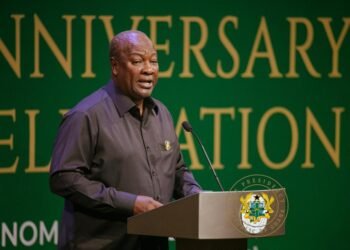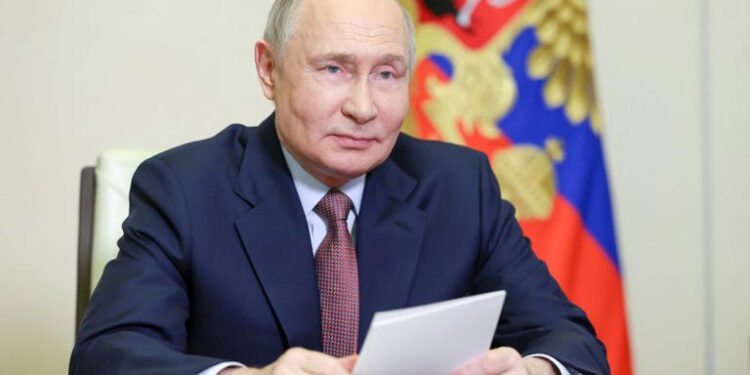The Minister for Finance, Ken Ofori-Atta, has said that the advent of the novel coronavirus has revealed in plain sight the unfair ways the rest of the world treat Africa.
According to him, even in dire times like this, the West and or the developed economies are still trying to milk the continent of the reserved currency that it does not have. He indicated that it is but only a miracle that Ghana’s dollar depreciation stands at about 2.3 or 2.4 per cent.
“It is sad when you realise that even in this period, Africa loses tourism, remittances, investors take their monies out and commodity prices also go and all of that lure to the benefit of the West or wherever the pandemic came from. Not only have we been hit economically but in a perverse twisted way transferring money to them, eating at this time and then we’re also saddled with Africa’s debt which I think this year will be about $44 billion of servicing of loans etc. And so, it’s not easy and we don’t have a reserved currency and so you have to also manage your currency and it’s quite remarkable because I think year-to-date, it’s about 2.3 to 2.4 per cent in the dollar depreciation which really is quite a miracle.”
As the Chairman of the board of Development, World Bank, he disclosed that his outfit is working to change situation by relooking at laws and rights. He was optimistic that come the next annual meeting, most of these injustices will be addressed.
“I think this COVID period has thrown even more light on the injustice in the system and a number of us finance ministers including the UNECA and some AU envoys that have been selected are working through a whole program to look at the distribution of special drawing rights, issuing new ones, bundling those that are not used, looking at creating a vehicle that will facilitate entry at a cheaper rate into the capital market and also…debt relief and cancellation. We’ve gone quite a bit of ways in that and I suspect that by the annual meeting, we may see some rather Techtronic shifts.”
In response to comments made by the opposition party, the National Democratic Congress (NDC), saying they could equally handle the pandemic because it is not unprecedented, the Finance Minister gave some points to buttress his stance.
“Well, I think they talk about since 1870, we haven’t seen such a drastic non-war event before. If you look at the Spanish flu in 1918, the great depression 1933, then you come back and maybe look at the modern era, the financial crisis in 2008-2009 and when you see a contraction of this nature in which the OECD and G20 countries are literally pumping over $11 trillion, throwing all classical economies saying the key issue A is a health issue but that can be taken care of but it has a grinding effect on the economy which is for the experience.”
Mr. Ofori-Atta holds that the pandemic is unprecedented as he indicates that most African economies are most likely to face a recession.
“In Ghana, for example, we move from 6.8 per cent economic growth to 0.9 per cent. That’s a dramatic 6.0 per cent in reduction and in Africa, I think most African countries will have a negative growth rate and that’s unprecedented for us. The past 25 years in the period which there has been 2 decades of relative stability and economic growth so it warrants to be called unprecedented.”
While speaking on the Point of View, he emphasized that he did not like to politicize the economy rather, he deals with facts and hopes that politicians would rather say “what have we done or will do for Ghanaians”.
This was his response to his predecessor, Seth E. Tekper who compared the three years primary balance of the incumbent government to the Mahama-led-administration.
“I can’t say much more about what we all inherited and there must be a reason why Ghanaians decided they need a new management? So, let’s just accept that and then see how over the period we’ve been able to exit the programme and the numbers, if that’s what he wants to use, have been really relatively much better than when they had. But the impact in terms of social impact of how many people have been to school, the stability of electricity, how many people are in the leap program, how many school-feeding, which is what you can say a Ghanaian has participated.”





















